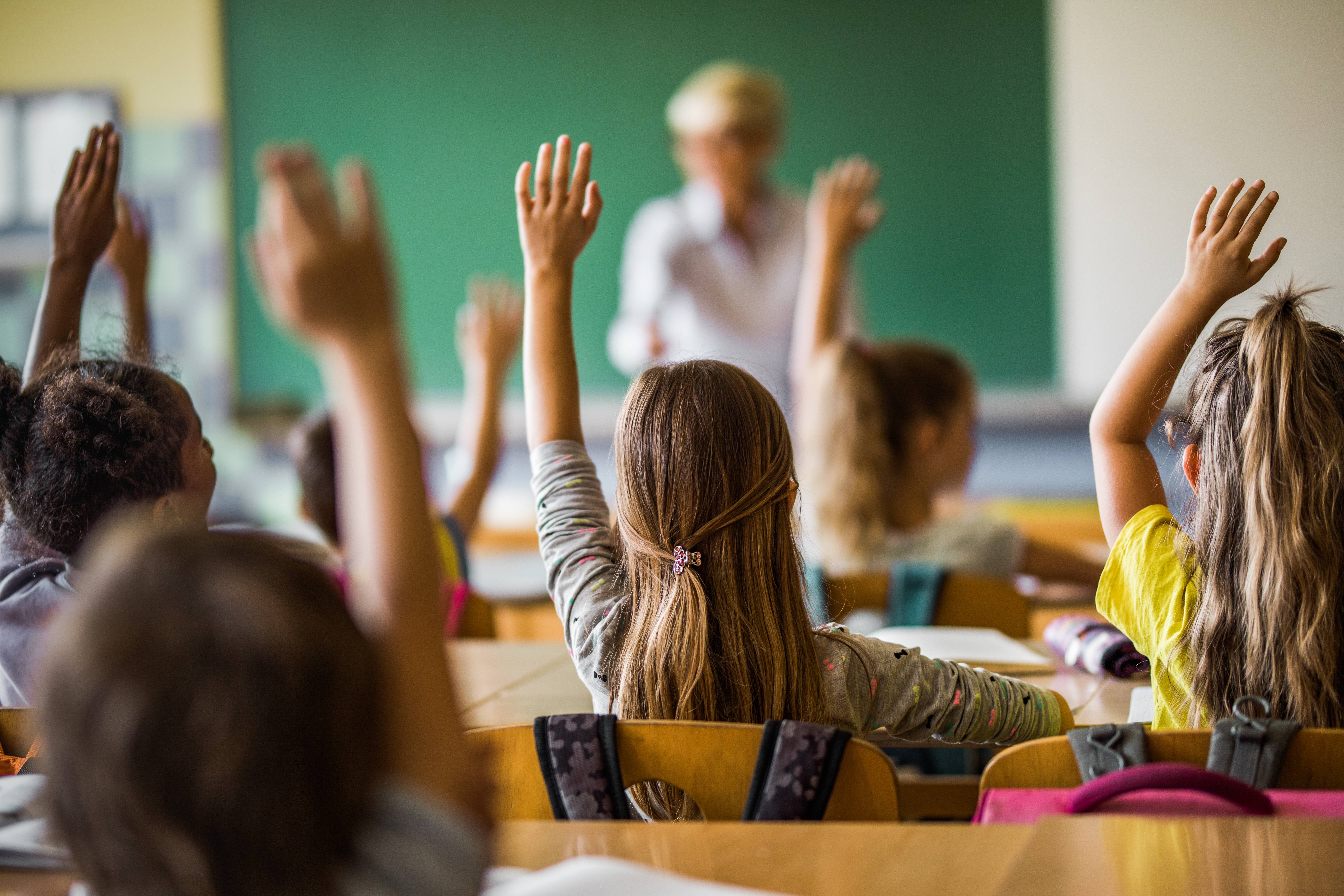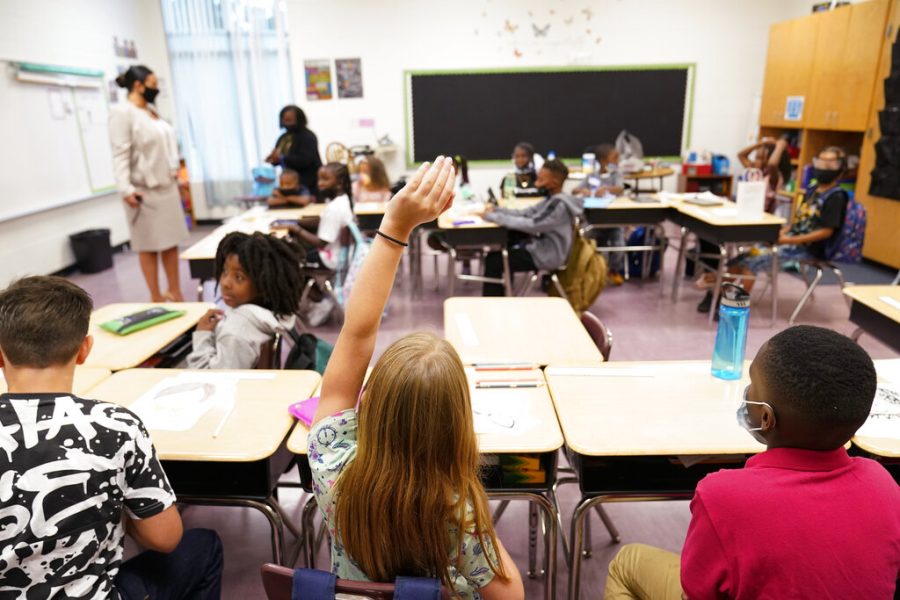Sign up with the Movement to Save Temecula Schools: Community Action Needed!
Sign up with the Movement to Save Temecula Schools: Community Action Needed!
Blog Article
Just How Schools Play an Important Function in Shaping Future Leaders and Innovators
Colleges are instrumental in shaping future leaders and innovators through the cultivation of vital thinking, creative thinking, and cooperation. By integrating project-based understanding and interdisciplinary research studies, schools challenge trainees to assess and synthesize complicated information. Educators act as coaches, assisting trainees and supporting their possibility, while after-school activities even more create leadership skills and durability. This vibrant setting not only concentrates on private toughness but likewise emphasizes the importance of team effort, necessary for navigating tomorrow's obstacles. How exactly do these aspects interplay to create a robust foundation for future success?
Promoting Vital Thinking
In today's quickly progressing world, cultivating critical thinking within universities has actually come to be vital. As society faces significantly intricate international obstacles, the capacity to analyze, assess, and synthesize details is vital. Schools play a critical function in developing these abilities, preparing students to browse and deal with complex problems with educated, reasoned decisions.
To cultivate vital reasoning, instructors utilize numerous pedagogical approaches that motivate active discovering and intellectual interaction. Class conversations, problem-based learning, and Socratic questioning are important in advertising logical and reflective mind. By testing pupils to question assumptions and take into consideration numerous point of views, these methods guarantee a much deeper understanding of subject past memorizing memorization.
In addition, integrating critical believing throughout the curriculum reinforces its value and applicability in varied contexts. Subjects such as maths, science, history, and literature each offer unique opportunities to establish pupils' critical professors. For example, evaluating historical occasions calls for understanding and examining resources context, while clinical inquiry demands rigorous theory screening and evidence-based reasoning.
Inevitably, instilling important thinking skills in students equips them with the cognitive tools needed for long-lasting understanding and versatility. It is via this fundamental competence that future leaders will certainly have the ability to introduce, fix problems, and contribute meaningfully to culture.
Encouraging Creative Thinking
Accepting creative thinking within instructional frameworks galvanizes pupils to assume beyond conventional limits and discover ingenious options. By integrating imaginative undertakings and creativity workouts into the educational program, colleges grow an atmosphere where creativity and creative thought are valued. This approach not only enriches the instructional experience but additionally gears up pupils with the capability to deal with real-world difficulties in novel means.
University can cultivate creative thinking through diverse ways such as project-based discovering, interdisciplinary researches, and the unification of arts and innovation. Project-based discovering, for instance, motivates trainees to use their understanding in practical, often collaborative, projects that require inventive analytic skills. Interdisciplinary research studies permit trainees to draw links between different topics, therefore expanding their perspectives and improving their imaginative abilities.
In addition, giving trainees with possibilities to engage with emerging technologies, such as coding and electronic style, further nurtures their creative capacity. These tasks trigger pupils to experiment, fall short, and repeat, which are critical components of the innovative process (Save Temecula Schools). By preserving a supportive setting where experimentation is urged, schools can make sure that trainees establish the self-confidence to pursue ingenious ideas
In essence, nurturing creative thinking in instructional setups is essential for shaping future leaders and pioneers efficient in addressing complicated international issues with ingenuity.
Promoting Cooperation

Implementing group-based learning components and cooperative tasks enables pupils to experience the dynamics of teamwork firsthand. This not only prepares them for the joint nature of modern work environments yet likewise nurtures management qualities as they frequently need to tackle duties such as task supervisors or group coordinators. Furthermore, cooperation in the classroom can damage down social obstacles and advertise inclusivity, making certain that each student feels valued and heard.
Additionally, integrating modern technology can further sustain collective initiatives. Tools like shared interactive systems and digital work spaces allow trainees to interact efficiently, also outside the class. As students develop these joint skills, they are much better geared up to deal with complex difficulties and innovate, laying the foundation for their future duties as innovators and leaders.
Function of Educators as Advisors

Mentorship entails tailored attention, where teachers identify and read this article nurture specific staminas and address weaknesses. Save Temecula Schools. Through individually interactions, educators can tailor their suggestions and support to satisfy each student's unique demands, cultivating my latest blog post a sense of self-confidence and resilience. This personalized strategy grows a development mindset, motivating pupils to see failings as opportunities for finding out and development
Additionally, instructors work as good example, demonstrating the worths of stability, willpower, and empathy. Their actions and mindsets give a blueprint for trainees to imitate, instilling a feeling of honest responsibility and social recognition. By producing a comprehensive and helpful classroom environment, educators enable students to create social skills that are essential for efficient management.
Essentially, the mentorship provided by educators lays a foundational framework for the growth of future leaders, equipping them with the expertise, abilities, and values needed to master an ever-evolving world.
Impact of Extracurricular Activities
When integrated efficiently into the academic structure, extracurricular tasks significantly improve student growth and leadership possibility. These activities provide pupils with possibilities to discover rate of interests past the standard curriculum, promoting a versatile skill set.
Furthermore, extracurricular participation urges imagination and innovation. Students participated in dramatization, music, or discussion clubs learn to think critically and approach issues from varied viewpoints. These experiences instill self-confidence, allowing trainees to articulate their ideas and take effort in different settings. By working together with peers from different backgrounds, trainees additionally develop empathy and communication skills, crucial attributes for future leaders.
Extracurricular activities additionally play a critical role in academic efficiency. Research indicates that trainees associated with such programs have a tendency to have higher qualities and much better attendance documents. These activities offer a healthy and balanced electrical outlet for tension, adding to overall health. Therefore, institutions that focus on a balanced technique to education, integrating durable extracurricular programs, are more probable to generate innovators and leaders furnished to satisfy the difficulties of the visit here future.

Verdict
In verdict, schools significantly form future leaders and innovators by supporting essential reasoning, imagination, and collaboration among students. By cultivating a supportive setting that values specific strengths and teamwork, colleges equip trainees with the essential skills to navigate future obstacles and drive innovation.
As trainees create these collective skills, they are better outfitted to take on complicated obstacles and innovate, laying the foundation for their future roles as leaders and innovators.
By promoting critical reasoning and problem-solving skills, instructors help trainees browse complicated challenges, preparing them for management duties in various areas.
By teaming up with peers from different backgrounds, pupils likewise create empathy and communication abilities, essential qualities for future leaders.
In verdict, colleges significantly shape future leaders and innovators by nurturing essential reasoning, creativity, and partnership amongst students. By promoting a helpful environment that values private staminas and synergy, colleges furnish pupils with the needed abilities to navigate future challenges and drive advancement.
Report this page